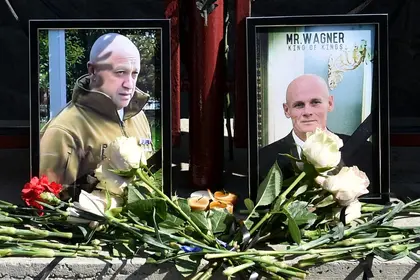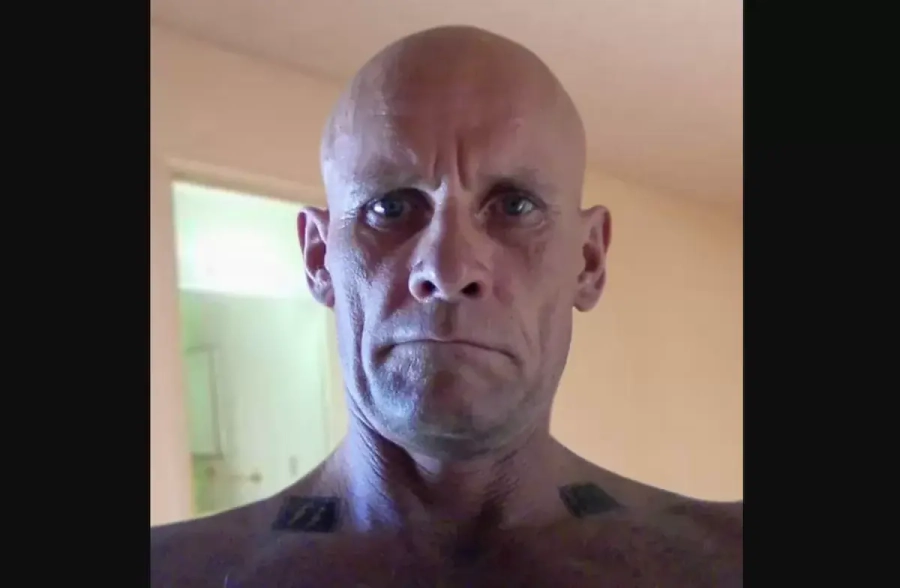Russian authorities have confirmed that the head of Wagner, Yevgeny Prigozhin, was killed when his corporate plane came down near the village of Kuzhenkino in the Tver region of Russia shortly after 6:10 p.m. (local time) on Wednesday, Aug. 23.
Rosaviatsia, Russia’s Federal Air Transportation Agency confirmed that all 10 people on board the plane were killed and published the names of those listed to be travelling on the flight as:
JOIN US ON TELEGRAM
Follow our coverage of the war on the @Kyivpost_official.
Passengers:
Yevgeny Prigozhin;
Dmitry Utkin;
Sergei Propustin;
Yevgeny Makaryan;
Alexander Totmin;
Valery Chekalov;
Nikolai Matuseev.
Crew:
Alexei Levshin – pilot;
Rustam Karimov – co-pilot;
Kristina Raspopova – flight attendant.
Who were the Wagner personnel?
Some social media has termed the six Wagner members as part of the mercenary force’s “command group,” who were also involved in the aborted June 24 rebellion. Another source identified them as a cameraman, Wagner’s logistics manager, and Prigozhin’s personal security detail – but who were they?
Dmitry Utkin
Considered the co-founder – with Prigozhin – of the group which took the same name as his callsign – “Wagner.” Although he was well known, he shunned the limelight, unlike his chief, and little is known about his history.
He was believed to have been a GRU (military intelligence) officer with Russia’s Spetsnaz special forces for 20 years up to 2013. He served with regular forces in both Chechen wars and alongside them in Syria.

US Must Address Russian Disinformation to Strengthen US Election Integrity
As a Wagner member he fought in eastern Ukraine from 2014, for which he received bravery awards from President Vladimir Putin.
Commentators disagree on his actual role in Wagner. The US think tank, Center for Strategic and International Studies said in 2020 that “it cannot be verified whether Utkin [was a leader] or was only a front-man for someone else.” Others suggest it was the other way round – Utkin was the real military leader while Prigozhin was merely the PR figurehead.
Utkin was considered to be a “native faith” believer (those who worship pre-Christian Slavic gods) and an admirer of Nazi aesthetics, as evidenced by an SS lightning bolt tattoo at the base of his neck.
Some members who met him in Syria he even claimed he had a swastika on his arm. Also, the choice of his callsign in memory of Hitler’s “favorite composer” was an early indication.
Valery Chekalov
Thought by many to act as Prigozhin’s Chief of Staff or deputy, Chekalov was also alleged to be the head of the group’s security department.
He was included in the list of sanctions imposed by the US State Department on July 20 against “those supporting Russia’s war against Ukraine,” for having “acted for or on behalf of Yevgeny Prigozhin… and [having] facilitated shipments of munitions to the Russian Federation.”
According to open-source intelligence groups, Chekalov was a shareholder of companies that had been granted valuable oil deals by the Syrian government and supplied Wagner with arms and equipment.
Yevgeny Makaryan
Makaryan, was a feared fighter within Wagner and identified by a number of Russian sources to be Prigozhin’s bodyguard. He joined Wagner in March 2016 and answered to the callsign “Makar.”
According to Wagner “legend,” he was part a Wagner assault detachment in Syria, and survived being fired upon by a US aircraft near Khasham in 2018.
Alexander Totmin
Little is known about Totmin, who had the callsign “Tot,” but is believed to have performed well as a Wagner fighter in Sudan before becoming another of Prigozhin’s bodyguards.
Sergey Propustin
Another Wagner fighter with a sketchy background, Propustin was recorded as a Wagner “reconnaissance” soldier joining in March 2015. He had the callsign “Kedr.”
Nikolai Matuseev
Matuseev hasn’t been recorded as an official Wagner member, although someone with the same name joined Wagner in January 2017 and served with Makaryan in Syria.
Reports from Russian social media channels associated with Wagner suggest other members of Wagner’s leadership may also have been on the flight.
The Kremlin has yet to comment on the crash or Prigozhin’s demise. Putin was attending an event to mark the 80th anniversary of the Soviet Union’s victory in the Battle of Kursk during the Second World War. Some social media has suggested this may have been to provide the Kremlin leader with “an alibi” or “plausible deniability.”
It was reported that as soon as the news of the plane crash was received, he left the occasion and moved to his villa near Moscow.
You can also highlight the text and press Ctrl + Enter







